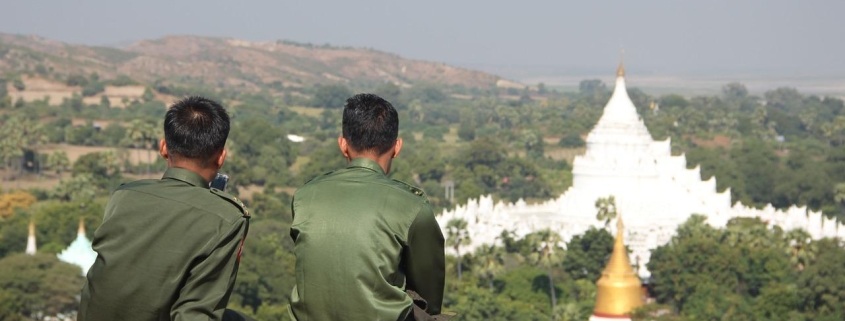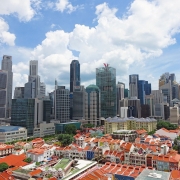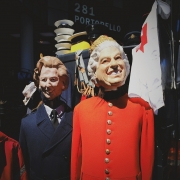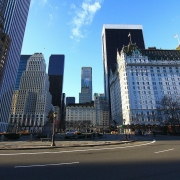Why is Myanmar’s military so powerful?
Topic of Study [For H2 History Students]:
Paper 2: Search for Political Stability
Section B: Essay Writing
Theme I Chapter 1: Approaches to Governance
Historical Context: Humble beginnings
4 January 1948 marked the newly-independent Union of Burma. Initially, the Burmese military was led by a Karen, General Smith Dun. Later, Dun was replaced by a Burma, General Ne Win. In the mid-1950s, the Tatmadaw (official name for the armed forces of Myanmar) numbered only 110,000.
While Mountbatten accepted Aung San’s recommendation of Bo Let Ya as junior Deputy Inspector General, he chose Colonel Smith Dun, a rapidly promoted officer of Karen ethnicity, as the other and slightly more senior Deputy Inspector General from the old Burma army.
[…] Ne Win was then appointed as the Deputy Defence Minister. Under the new dispensation, Smith Dun, as Chief of the General Staff, was to have direct access to the Prime Minister in case of disagreements with Ne Win, an arrangement which the BSM chief, General Bourne, founded highly unsatisfactory.
An excerpt from “General Ne Win: A Political Biography” by Robert Taylor.
The military was charged with the responsibility to maintain social and political order. As Prime Minister U Nu’s Anti-Fascist People’s Freedom League (AFPFL) government was beset by two communist rebellions and minority revolts, the democratic leader turned to General Ne Win for help.
After the Chinese Civil War ended in 1949, the remnant Kuomintang (KMT) forces fled into northern Burma, biding time to launch resistance movements on the mainland. U Nu was concerned that the Chinese confrontation may spill over into the northern parts of Burma.
Caretaker Government (1958-1960)
Although elections were scheduled to be held in 1958, the AFPFL was increasingly fractured due to divisive political views. U Nu’s decision to pardon leftist soldiers had alarmed the military. These soldiers supported the National United Front, which demanded to join the military.
To prevent Burma from being plunged into a civil war, U Nu made reference to the constitution, allowing the military to take over. During this two-year period, the military was tasked to restore law and order and prepare the nation for elections.
Senior military personnel approached the prime minister suggesting that he allow the military to take over for a period (initially six months that was extended to about eighteen months) to avoid internal conflict. The legislature agreed; it was characterized as a “coup by consent” or a “pseudo-constitutional-peaceful-military coup d’état ”. “U Nu took the constitutional way out and Ne Win the constitutional way in.
[…] The “caretaker” military forcibly lowered prices in the bazaars, removed over 160,000 illegal squatters from downtown Rangoon to the rice paddies of the suburbs (the military repeated this in 1988/89), diminished insurgent control, negotiated the Chinese border agreement (signed later by U Nu), eliminated the legal authority of the hereditary ethnic Shan and Kayah leaders, and passed a universal (male-female) military conscription law passed (but never enforced) on an Israeli model.
An excerpt taken from “The Military in Burma/Myanmar: On the Longevity of Tatmadaw Rule” by David I. Steinberg.
General elections were then held on 6 February 1960 after the military voluntarily handed over to a civilian government for democratic processes to persist. U Nu’s ‘Clean AFPFL’ won 158 seats, whereas Kyaw Nyein and Ba Swe’s ‘Stable AFPFL’ won 41 seats. The leftist NUF won only 3 seats.
During the elections, U Nu campaigned the promotion of Buddhism as the state religion, which angered the Kachin minority. Notably, the the military was partly comprised of Kachins, which may have influenced the decision for a military-led revolt. General Ne Win objected to the pro-Buddhist policies of U Nu as the some of the military personnel were Christians.
Enter the Burma Socialist Programme Party (1962): The Coup & Pre-eminence of the Military
After the military coup on 2 March 1962, a 17-man military council formed the Burma Socialist Programme Party (BSPP). Subsequently, the BSPP imposed strict laws to curtail political freedom.
Over the next couple of years, all other political parties were banned, censorship imposed, student protests violently suppressed, the judicial system destroyed, the bureaucracy purged of senior officials, foreigners (especially Indians—those from the subcontinent—and Chinese) expelled, and a nationalization of all industry begun. Buddhist monks were finally registered, and in 1982 a highly nationalistic citizenship law was enacted. To run a socialist government requires a talented bureaucracy, but it had been decimated. Eminent Burmese economists left the country.
An excerpt taken from “The Military in Burma/Myanmar: On the Longevity of Tatmadaw Rule” by David I. Steinberg.
Overall, the military dominated nearly all aspects, the economy, politics and even the society. For instance, 15,000 businesses were nationalised, enabling the military to run the economy. The BSPP expanded its organisation, including 99,000 ‘candidate’ members and 167,000 ‘sympathisers’. The Tatmadaw formed a Central School of Political Science in 1963 and trained over 29,000 cadres. These cadres replaced the civilian elites that initially occupied civil service sectors.
In 1974, a new constitution was developed, legitimising the BSPP as the sole party.
On 3 January 1974, the Constitution was enacted. It constitutionalised a single party system with the BSPP as the sole political party. It established a unicameral legislature as the most powerful state organ. The Council of State was formed from the members of the unicameral legislature and remained responsible to it. The unicameral legislature elected all major bodies including the Council of Ministers, the Council of People’s Justices, the Council of People’s Attorneys and the Council of People’s Inspectors. Members of the Pyithu Hluttaw were in theory directly elected, and elections were to be held every four years. Elections were held in 1974, 1978, 1981 and 1985. These elections, however, usually only had one candidate for each seat.
An excerpt taken from “The Constitution of Myanmar: A Contextual Analysis” by Melissa Crouch.
What can we learn from this article?
Consider the following question:
– How far do you agree that military intervention in the politics of independent Southeast Asia led to increased political stability?
Join our JC History Tuition to learn more about Approaches to Governance. The H2 and H1 History Tuition feature online discussion and writing practices to enhance your knowledge application skills. Get useful study notes and clarify your doubts on the subject with the tutor. You can also follow our Telegram Channel to get useful updates.
We have other JC tuition classes, such as JC Math Tuition and JC Chemistry Tuition. For Secondary Tuition, we provide Secondary English Tuition, Secondary Math tuition, Secondary Chemistry Tuition, Social Studies Tuition, Geography, History Tuition and Secondary Economics Tuition. For Primary Tuition, we have Primary English, Math and Science Tuition. Call 9658 5789 to find out more.











